How to get a job as a community manager in games
As communities keep growing and companies look to engage with them more genuinely, the GamesIndustry.biz Academy looks into how to get a job in community management
Finding a job in the games industry is no easy task. Our guides can help you to find the right path to the games industry job of your dreams. You can read our other in-depth guides on how to get a job in the games industry on this page, covering various areas of expertise.
Community managers are the unsung heroes of the games industry. Whenever something goes wrong, they're on the front line, the point of contact for all frustrations from a community that can be prompt to escalate things to an absurd level.
When this happens, behind the scenes, a team of community managers will try their best to keep it together, remain civil, and provide as much information and reassurance as possible.
Community management bridges the gap between a company's corporate structure and the gamers the industry serves. A community manager is not only the public face of a brand, but also the point of contact that connects a development team with its players, with the end goal of making better games, for everyone.
Community management is not quite PR or marketing, and its accessibility tends to make it a prime position for junior staff. Much like QA, it is still widely seen as a point of entry into the industry before doing something else. But the field has evolved drastically in the past decade due to the increasing power of social media platforms and live games, and it's now also a career of its own.
Community management roles are popular -- while there are a lot of vacancies at any given time across a wide variety of studios, competition remains fierce. However, there are ways to better prepare for this role if you're considering it as a career, and stand out from the crowd.
What education do I need to get a job in community management?
- Studying communications and media is the traditional way in
Should you decide to go down the higher education route, many degrees can lead to a job in community management. Communications or digital media degrees are a natural fit for this career, which is what Mike Adebajo, social media manager at Square Enix Europe, did.
"Certainly, studying Digital Media and going to university really helped," he says. "At the time, the course allowed me to understand how social media was becoming the best way to target and engage with your audience, and that companies were very quickly coming to realise this. I think those three years really helped me to understand the commercial world and its demands."
To get a foot in the industry, Adebajo took a job at Sony as part of the EU PlayStation Store team, before he found an entry level marketing job at Square Enix. Eventually, he was approached about an internal community role. However, despite having a relevant degree, he still believes that community management is quite unique in that you don't necessarily need to study in a field that's related to it.
"It's a job that largely demands passion for video games for you to hopefully thrive in the role," he continues. "I think you can do that with any degree under your belt. I know several community managers who largely studied subjects such as history or mathematics, but are keen gamers and decided this was the job for them."
Case in point would be Oliver Hindle, community director at Mediatonic, who went to university to study music technology.
"I kind of fell into doing [community management]," he says. "In order to promote my music, I learned how to edit videos and created them to promote my songs. I did that for quite a few years and built up a decent size community and lots of connections with other YouTubers. One day, I had an idea for a video where I would sarcastically pretend to give a professional lesson on how to draw... But I'd draw really badly. It ended up going viral [and] I was able to very quickly grow this new drawing channel to 150,000 subscribers.
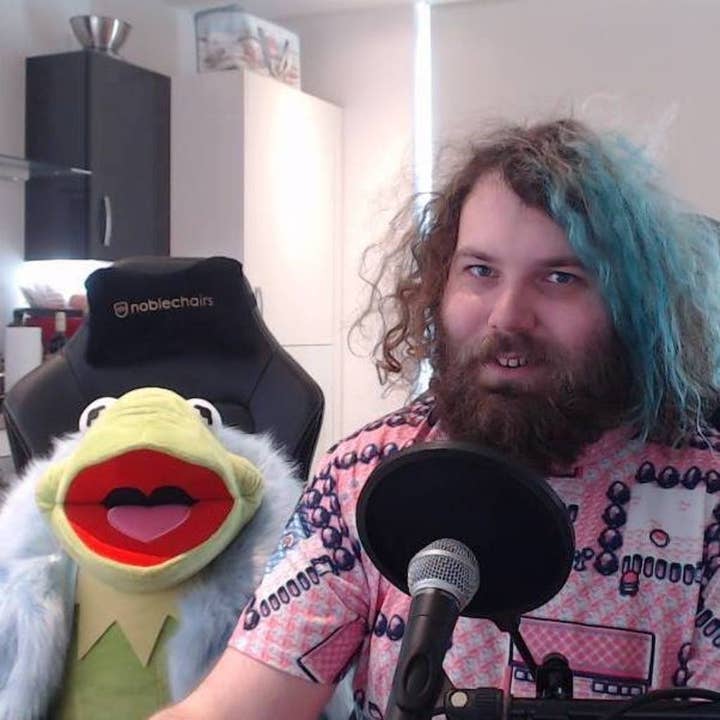
"I went on to finish my degree in Music Technology and didn't really fancy being a full-time YouTuber. I saw a job advertised at Bossa Studios to be a community and marketing assistant that could also edit videos. The job listing basically covered everything I'd already been doing for my own content but for a gaming studio, so I applied."
- You don't need a degree, but training will go a long way
The other side of the coin is simply that you do not need higher education to get into community management. Ibrahim Bhatti, Sega Europe's community marketing manager, started his career in QA 15 years ago, and later applied to be a community moderator.
"I wouldn't necessarily say [education] is a must, as there are so many different opinions on how community management is done and no two companies are the same," he says. "As a result, the role can be tailored by the individual community manager and the company they work for. That said, a certain level of training should be maintained in terms of the fundamentals of community management, whether it be the use of tools, etiquette or best practices."
That training can be provided directly by the company you're joining. That was the case for Antonela Pounder, now director of global community at 505 Games.
"Formal training was offered to me soon after joining 505 Games, which was amazing," she says. "This was hugely beneficial in getting me up to speed with aspects of my role that I hadn't explored in previous companies I worked at. I don't think formal training is crucial to becoming a community manager, but it's important once in the role to stay on top of trends that can play a key role in our success."
"A certain level of training should be maintained [on] the fundamentals of community management"Ibrahim Bhatti, Sega
When Bhatti started as a community manager back in 2009, there was no formal training, and he agrees that a framework should be provided to newcomers.
"I learned the job as I went along, and turned to my peers in the industry for advice," he says. "As a result there was no structure to what I was learning and how I was progressing. Formal training at least sets the bar to a sufficient level of understanding of the role and what's expected."
That training can also be provided through external initiatives. Hindle did a few training days via The Chartered Institute of Marketing, while associate community manager at nDreams Daniel Crosgrove took part in Activision's ambassador program. The latter is essentially voluntary moderation from players within the community, providing valuable experience to those wishing to make a career out of community management.
"While I was studying Computer Science at university, I started moderating forums and online chatrooms for a large video game series in my free time," Cosgrove says. "This led me to reconsider my chosen career path of programming, and made me focus my co-curricular efforts to become a community manager. I signed up for Activision's Ambassador program to get one-on-one support experience in the games industry which was invaluable for building up my communication skills."

What do I need to get noticed in community management?
- Build up a social media presence
The most obvious thing to do if you want to get hired as a community manager is to be active on social media and engage with your existing network. This will prove to future employers that you know the tools of the trade and can manage a community of your own, albeit a small one.
Pounder started in the industry as a tester at Ubisoft Reflections, until someone at the company recognised what she did in her spare time on her own social media channels and offered her the opportunity to take up a community management position.
"Utilise all these amazing social channels that are available and get involved in community related activities where you can," she says. "For example, look for opportunities where you can contribute in the form of moderation and open/closed betas. Run your own blogs, build up a social presence, and look to engage with brands online.
"If I was on the lookout for a junior community manager, I'd want to see how proactive they've been, because they're not going to have that industry experience. Having a big social following isn't key for me, but seeing someone actively go out of their way to get involved in communities and play a positive role within them is invaluable."
Victoria Tran, communications director at Kitfox Games, and an advocate for ethical community management and leading communities away from toxicity, adds: "If programmers and artists have game jams to gain experience, community managers have forums, events and Discords. If someone is going to trust you with their community, they want to know you are able to handle people, problems when they arise, and understand how it feels to have power in a group."
Being actively involved in existing communities and volunteering to moderate them, or trying to grow your own audience, are crucial to get you noticed and gain experience.
"It's one of those weird jobs where the experience you need is often doing the thing itself"Oliver Hindle, Mediatonic
"It's one of those weird jobs where the experience you need is often doing the thing itself," Hindle says. "You could start streaming or creating content yourself and practice managing and growing a community around your own content. It's also worth considering treating your own social media channels as a personal brand and trying to grow your following that way. Being able to grow your own social following can teach you a lot of things about what kinds of content works, what doesn't, and how to reach new audiences."
And this doesn't have to be focused on games necessarily, Adebajo adds: "It could be a blog about photography, for example -- just something to show that you understand the digital world and speaking to a specific audience."
And remember: everything you say on the internet is permanent. If you want to get into community management, keep it clean.
- Build up transferable skills
Your own social media presence is something that you'll be able to bring to the table when meeting a potential employer. But having relevant work experience will also go a long way -- and once again, it doesn't have to be in games. You can find skills that apply to community management in many public-facing roles, and internships are also a great way to gain experience.
"Building up experience in consumer facing roles will prove highly advantageous if you want to become a community manager," Pounder says. "This can be achieved through retail, customer support, or any other role that involves speaking to the public."
Looking at other entertainment industries for opportunities might also be a good way in, Bhatti says.
"If you can't find work in video games, try to branch out into other entertainment industries like film or TV -- anything that has relevance to pop culture. Skills learned in these fields can easily be transferred into the video games industry. I would also say that working in an agency would be a much quicker way of learning as it's usually a fast paced environment but as a result can be quite stressful."
"I feel that the games industry has fallen behind a little bit on social media"Oliver Hindle, Mediatonic
To be a good community manager, you need to be passionate about managing a community as much as you are passionate about games, so looking at what's being done in unusual places may be a good way to learn a thing or two about what the job entails
"With Fall Guys, we've had a lot of success by taking inspiration from fast food brands and from influencers, for example," Hindle says. "I personally feel that the games industry has fallen behind a little bit on social media. We're usually at the forefront of anything related to technology, but there are huge brands like Wendy's and KFC that are doing a better job at engaging and building communities on Twitter than some of the biggest video game accounts."
What qualities and skills do I need to work in community management?
One thing you need to keep in mind before entering the world of community management is that the skills required will vary a lot depending on the job.
"Community managers come in all different flavours, and it's up to you to decide what you're most interested in," Tran says. "AAA companies and indie studios often require very different skills sets, so it'd be good to check past job descriptions for whatever side of the industry you're aiming to get into. For instance, indie studios often require more diverse skill sets, since community managers can end up handling all kinds of things like social media, copywriting, video editing, live streaming, customer service, marketing, PR, events, and so on."

In addition, some of these skills -- empathy, people skills -- may not be straightforward to learn, so it might take some trial and error to get there.
"The hardest thing to teach someone is soft skills, and as a community manager, that's what you'll be using the most," Tran continues. "The ability to navigate and mitigate other people's emotions is not easy, and often you'll run into stressful situations that require various judgement calls. There's usually a workaround or fix when you're trying to fix bugs in a game. But when you're working with various people from all around the world? There's no one size fits all approach."
- You need to have good communication skills
It shouldn't come as a surprise that the primary skill needed to be a community manager is to be a good communicator.
"You will definitely need some experience that demonstrates emphatic communication skills and a deep knowledge of social media," Cosgrove says. "The core of the job revolves around getting information out to relevant players, so strong written and verbal communication skills are a must."
This will also require a bit of patience and being able to "keep your cool," as Bhatti says. You will sometimes face unhappy players or need to re-explain things multiple times. But being a good communicator is not important just with your community.
"You're the mediator and advocate for your studio, so it's important to have things like empathy"Victoria Tran, Kitfox
"Also with your colleagues in communicating your ideas and plans, and how they're in sync with the overall goals of the project," Adebajo says. "You're usually the person who knows and understands your community the most, so it's key that you can communicate what you think would engage with them. "
Finally, when it comes to external communication, never forget that you are the face of the company that hired you, so you need to act as such.
"You're the mediator and advocate for your studio, so it's important to have things like empathy, good listening skills, and adaptability," Tran says. "Can you not only communicate with people in tense situations, but also rally them around a fun and positive space?"
- Be organised but flexible
It's easy to look at a viral tweet from a brand -- such as Fall Guys' skeleton or Big Yeetus -- and think it all came up organically within the past few hours. But more often than not, social media strategies are carefully planned, as Hindle shared in an article for the GamesIndustry.biz Academy detailing the social media strategy for Fall Guys.
"It's a role where you 100% must plan ahead," Adebajo says. "It's very rare that the content you publish is spur of the moment and I certainly got caught out early on for not preparing items weeks if not months ahead."
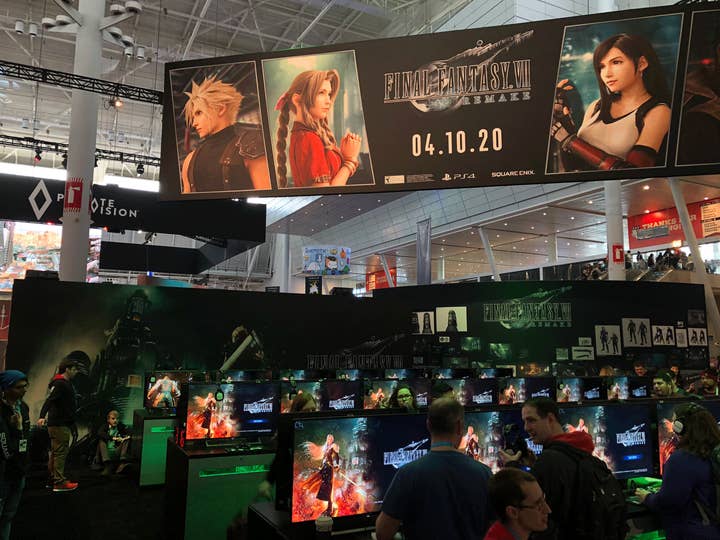
Listening to your community and its feedback is also a key aspect of the job -- so while organisation is crucial, you also need to be ready to drop everything and think on your feet when necessary.
"Being personable, able to multitask, and keep a cool head under pressure are key to the role," Cosgrove says. "Being able to adapt to change quickly is a big bonus. The online discussion space is constantly changing so being able to keep up with the latest trends will give you a huge leg up in the industry."
- Be creative
Coming up with ideas to engage with your community is no easy task -- there's only so many times you can use a meme, and you need to constantly bring something new to the table.
"Creativity is a big one, whether it be through words or digital content that you share with your audience," Adebajo says. "In gaming especially, you want to excite as well as inform, so you usually have to think of creative ways to do this."
"You want to excite as well as inform, so you usually have to think of creative ways to do this"Mike Adebajo, Square Enix
When on the lookout for community managers, Pounder says she's interested in finding people who can "think outside the box when it comes to social activations." She wishes she had personally been braver with the content she published when she started in community management.
"I should have taken more creative risks," she says. "I played it quite safe initially, but that was down to a lack of experience and confidence more than anything else. Being given the credentials to a well-known company's social accounts is incredibly daunting as a newbie. It took some time for me to push myself out of my comfort zone and have some fun on the platforms.
"[Now] I'm interested in finding community managers that [are] willing to take risks and can confidently flesh out a plan capable of generating growth, positive sentiment and incentivise conversions. The individual needs to be able to think about everything they do from a creative but also analytical standpoint."
- Showcase your technical skills
Having highlighted the importance of soft skills, Tran says that some technical skills are also required to be a good community manager.
"Oftentimes, it's great to have your own thing. What makes you special?"Victoria Tran, Kitfox
"Analytics tracking (and the ability to understand them), social media platforms, video editing, paid social ads, and so on," she says. "All of these and more could fall under the umbrella of community management, depending on what the studio needs. Oftentimes, it's great to have your own thing. What makes you special? Do you have a ton of streaming experience? Did you do journalism? Are you the best video editor? Can you do graphic design? All of these will help."
Since some community management roles will have you create content yourself, Adebajo adds that it's good to be proficient in specific software programs.
"I was lucky enough to have gained a lot of the skills during my time at uni, but I would certainly advise to get some working knowledge of programs such as Photoshop and Premier Pro," he says.
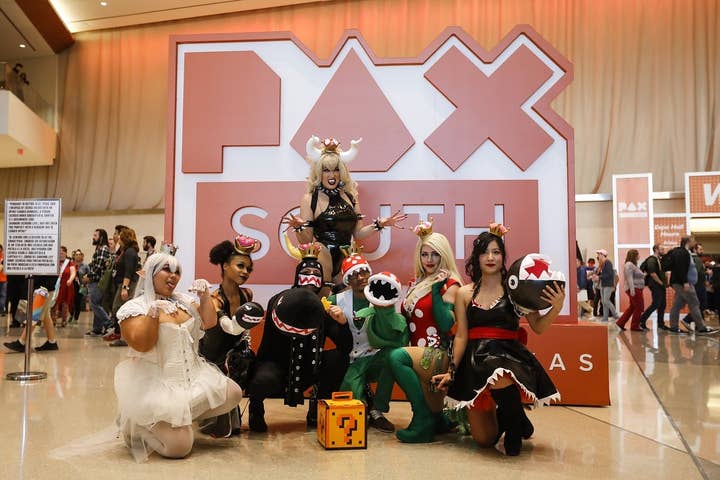
What are the common misconceptions about community management?
The most common misconception when it comes to community management is that all you do is sit on Facebook and Twitter all day. It is obviously not the case.
"While talking with the community is definitely a big part of the job, especially around game launches and key marketing beats, it is rarely the only thing you will do in a day," Cosgrove says. "A large portion of my time is spent doing research and analyses, writing reports, working with the rest of our publishing team on marketing plans and tracking data. If you're looking to start as a CM just to chat with people online, you're probably getting into the wrong job."
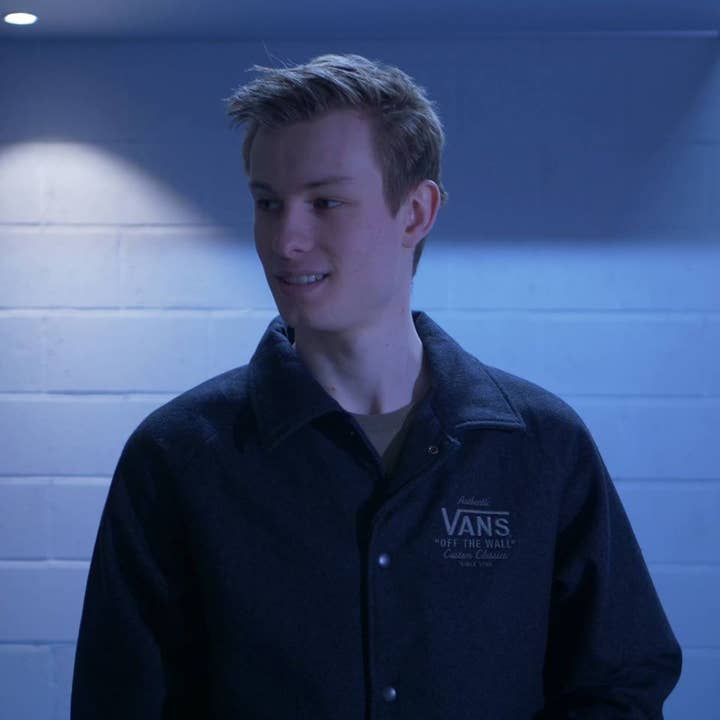
Posting content on a social channel is usually the end of a "long pipeline of work," Adebajo points out, adding that community management is a very data-driven job and by no means the "easy job" people seem to think it is.
"There's a misconception that we do what anyone can do but there's a lot more to it than that," Bhatti says "We become experts in being able to create a strategy that can also have an impact on the marketing strategy. There will be constant challenges, but at the same time, through hard work and patience, the job is also very rewarding. Seeing your ideas come to fruition and watching the community grow and seeing friendships created is one of the most rewarding feelings that every community manager has in common."
Growing and building a genuine community is challenging then, and Hindle adds that it's not as simple as looking at what others have been doing.
"I've seen studios copy each other's techniques but without fully understanding the strategy behind it, so they don't yield the same results. I think you have to really understand the game you're working on, the audience for that game, and then be able to tailor your content specifically for them."

Another misconception mentioned by Hindle is that community management is just a stepping stone onto other roles but there are natural progressions within the role without having to take a side step in another field. Hindle himself progressed from CM at Mediatonic to community director, while Pounder started as brand community manager at 505 Games and is now director of global community. But if you do want to branch out, being a community manager provides great opportunities for career progression.
"Being a community manager puts you in a great position to specialise into many roles across the games industry," Cosgrove says. "If you want to stick down the community and PR route you can progress towards a more media-focused role such as communications or PR manager, or if you are more marketing-minded it's possible to move towards a marketing or brand management position. Being an internal CM also opens you up to seeing what roles are available within a development team, which is another progression route you can choose to take."
Advice for new and aspiring community managers
- Go to events and network
Like many jobs in the games industry, networking is key to becoming a community manager and finding potential employers. And even without physical events, there are ways to reach out.
"Companies often run cool activations where players can get involved and, for aspiring community managers, you should absolutely utilise these opportunities," Pounder says. "They can help more than you might think. One of our Discord server moderators -- an aspiring CM -- reached out last year to tell me he secured a full-time role as a community manager for a well-known studio. His perseverance and efforts paid off."
"Events are great opportunities to observe, network with and talk to community managers"Daniel Cosgrove, nDreams
Cosgrove adds that, if he could go back to the start of his career, he'd try to do more face-to-face networking.
"I'd have tried to get myself out to events as frequently as possible, as these are great places to build interpersonal skills and do direct one-on-one community engagement." he says. "When the world sorts itself back out and everything starts to go back to normal, go to gaming events like Develop, EGX or PAX. These are great opportunities to observe, network with and talk to community managers."
- Learn to set boundaries
Learning to deal with criticism and unhappy members of the community is something that aspiring community managers should try to do as early as possible. Don't try to please communities at all costs -- you need to set the right boundaries from the beginning.
"When I was new into community management, I didn't react well to dealing with negative sentiment, but I soon realised over time that acknowledging their concerns is more beneficial than just ignoring them," Bhatti says. "Even if you aren't telling them what they want to hear, the community does appreciate that you as a company are listening to them."
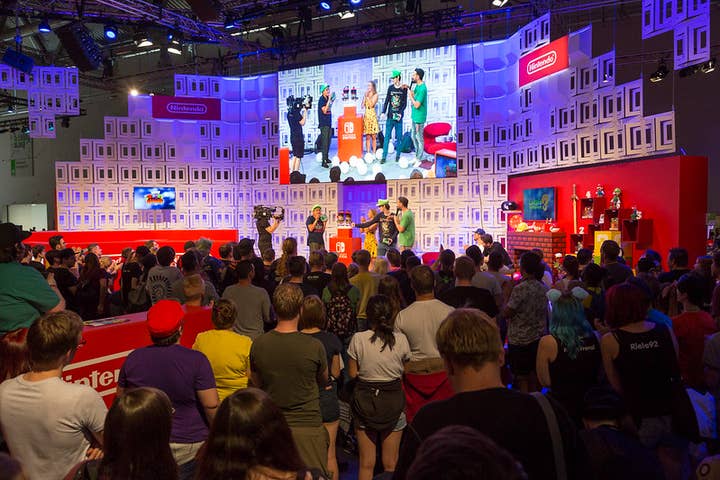
Recounting the mistakes she made during her early days in community management, Tran says she tried too hard to be a "people pleaser."
"That made a bunch of valued members leave after an argument I didn't handle well. I accidentally forgot to BCC a bunch of people in a huge community email. I wasn't good at setting boundaries for myself and almost burnt myself out. But I don't see it as necessarily bad things -- mistakes are normal, and what matters is what you do with that mistake moving forward."
- Do your research
Before starting a job -- or even before getting an interview for a position -- you should arm yourself with as much knowledge as you can about what will be asked of you, and the tools you'll be using.
"Research into different online platforms such as social media pages like Reddit, Facebook, Twitter and YouTube, but use it to gauge what reactions from fans are like and, importantly, look at how companies talk to them," Bhatti says. "There is no right or wrong or blanket social media strategy as every community and brand is different, but understanding what works and doesn't for a particular brand and audience is key. Just like there are different genres of video games, there are lots of different audiences within a fanbase."
That research also extends to the companies you can work with -- finding the right environment for yourself is crucial, and having a good culture fit with your studio is imperative to being a good community manager
"Obviously this can be beyond your control at times, but there is no way you can properly advocate for the studio if they are not treating you with the respect you deserve or treat you as a scapegoat," Tran says. "Yes, I know we're all excited to break into the industry, and that's great. But be aware of how the people there are treating you, and if things start to feel wrong, don't be afraid to leave it or look for work at a different studio. Community managers do tend to get attached to the communities they work with and become afraid of leaving it, but you need to put your mental health and wellbeing first before you can help anyone else.
"The network of community managers in games is so strong. More often than not we're always willing to help each other out, so don't be afraid to reach out if you need it, whether that's for advice or needing to vent."
More GamesIndustry.biz Academy guides to Working in Games
Our guides to working in games cover everything from how to get a job in the industry to how to avoid burnout:
